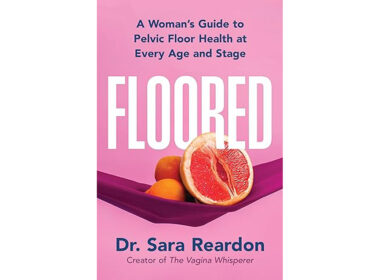This past year, I welcomed my third child into the world. Having successfully raised her two siblings through babyhood, I was armed with valuable experience, wisdom, and a determination not to be blindsided by послеродовая депрессия. So, when feelings of despair and hopelessness eventually rose to a crescendo, I reached out to a maternal mental health counselor instead of just trying to wait things out. With my counselor, I started to make plans to address my experiences of being easily overwhelmed, disorganized, and failing to prioritize well. Then my counselor said something that surprised me; while these were all normal experiences of being in the sleep-deprived trenches of new motherhood, these were also symptoms of ADHD. She invited me to reflect on whether these were new struggles, specific to this season of life, or whether these were regular themes in my life, now being exacerbated by the lack of sleep and sensory overload that are hallmarks of having a newborn. What exactly is the difference between “mom brain” and ADHD? I spent some time researching (and talking with my sister-in-law Kathleen about her adult-diagnosed ADHD) to find out.
ADHD in women
Согласно Кливлендская клиника, attention-deficit/hyperactivity disorder (ADHD) is a condition that makes it more difficult for people to manage their thoughts, feelings, and actions to do what they need to do. There are three subtypes: inattention, hyperactive/impulsive, and mixed. Inattention includes symptoms like having trouble focusing, having difficulty following through with plans, disorganization, regularly losing things, being easily distracted, and being forgetful. Hyperactivity includes symptoms like fidgeting, often feeling restless, difficulty being still or silent, talking excessively, and having a hard time being patient. To meet the criteria of ADHD, you must show most of the criteria for one or both subtypes for at least six months. And in women, the inattention-type symptoms are far more common than the hyperactive-type; these symptoms are less obvious and may contribute to the difficulty in recognizing ADHD in women. A mental health professional will conduct a comprehensive assessment to diagnose ADHD and rule out alternative explanations for symptoms.
“Attention-deficit/hyperactivity disorder (ADHD) is a condition that makes it more difficult for people to manage their thoughts, feelings, and actions to do what they need to do.”
While the clinical definition does include some of the difficulties women with ADHD face, it leaves out important factors like emotional regulation. According to the Attention Deficit Disorder Association, not only are mood swings common with ADHD, but the symptoms and their results (like difficulty in achieving goals and daily tasks) can contribute to depression, anxiety, and low-self esteem. My sister-in-law remarked, “The emotional part of ADHD is the part I’ve struggled with the most. I get overwhelmed more easily than other people and tend to feel emotions very intensely. I know my reactions can really impact my relationships, so I have to put in the work to manage my emotions and physical needs so I don’t overreact.”
ADHD and the postpartum period
Согласно Just Mind, ADHD symptoms tend to worsen when эстроген is low, and both estrogen and progesterone take a nosedive after childbirth. (Estrogen is also low during menstruation, so charting could help women with ADHD anticipate how their cycle will impact their психическое здоровье). ADHD symptoms are also worsened by common postpartum realities like sleep deprivation, lack of structure, and fewer opportunities for downtime. Because of these increased symptoms and an increased risk of anxiety and depression even when not postpartum, women with ADHD are at a much higher risk for postpartum depression (PPD). This survey by ADDitude reports that 61% of survey participants with ADHD self-reported having PPD. Because of this risk, and because issues with executive skills make the postpartum period harder than it already is, it is essential for women with ADHD (or women who suspect undiagnosed ADHD) to seek ongoing mental health support for this season of life.
“ADHD symptoms are also worsened by common postpartum realities like sleep deprivation, lack of structure, and fewer opportunities for downtime. Because of these increased symptoms and an increased risk of anxiety and depression even when not postpartum, women with ADHD are at a much higher risk for postpartum depression.”
Are you postpartum and wondering whether you should get tested for ADHD?
Unlike with depression, there is not a postpartum subtype of ADHD. While conditions and factors specific to the postpartum period can trigger a depressive episode, these factors will only ухудшить already-present ADHD symptoms. Having ADHD means that your brain works a bit differently than other peoples’ brains do, and if you are struggling with executive functioning while postpartum, it may be helpful to reflect on whether or not this struggle is new or simply worse. In Kathleen’s experience, “I had always struggled to get stuff done, but I always got there in the end. I can remember writing papers in college and just staring at the screen for hours trying to get started on a paper, but I assumed everyone else did that too.”
If you found it easy to focus, stay organized, follow through on plans, and relax before kids came along, it’s unlikely you have undiagnosed ADHD. Postpartum is just a hard season!
Another rule of thumb is “disorders cause distress.” Everyone forgets things or daydreams sometimes, and anyone can get frazzled or overwhelmed in the midst of a hard day. If these things are not regularly making it difficult to do the things you want to do, there is no need to seek out a diagnosis. If you experience common characteristics of ADHD that это impacting your ability to achieve goals, complete daily tasks, and this leads to stress and frustration, it may be time to talk to a medical professional about next steps.
“If you experience common characteristics of ADHD that это impacting your ability to achieve goals, complete daily tasks, and this leads to stress and frustration, it may be time to talk to a medical professional about next steps.”
Tips for sleep-deprived new moms and women with ADHD alike
In talking with my sister-in-law, I found that she had so much helpful advice to offer me as a mother of small children, despite having no reason to suspect that I actually have ADHD.
Терапия
As Kathleen put it, “Therapy has helped me manage my emotions and create strategies to be able to do the things I want to do.” Meeting with a counselor or therapist can be a helpful way to develop strategies specific to your situation and have an objective third-party with whom to discuss difficult experiences.
Breaking down tasks
“For starting tasks that I feel a mental block against starting, I find it helpful to complete an easier task first to get some momentum. I also like to break down a big task into a number of smaller tasks and check them off one at a time.”
Awareness and mindfulness
"Mindfulness has also been big for me; it has helped a lot with identifying feelings and noticing when my emotions start to feel too intense. I’ve also used a checklist to figure out why I was feeling overwhelmed (e.g. Am I tired, hungry, thirsty, lonely, or do I need to go on a walk?), and I would have a plan that included both immediate and more long-term solutions to feel better.” This can also include identifying the thoughts that may be working against you like “I can’t handle this” or “these kids are out to get me” and replacing them (eg, “I can get through this”).
Routine
"Having a routine lets me get done what I need to do more on autopilot, with less mental effort. Decreasing my mental load helps me manage my symptoms better, as does making sure I’m managing physical needs like еда and water.”
Self-acceptance
Finally, we discussed the importance of self-acceptance, especially during difficult life seasons. It’s okay to ask for help. It’s okay to need to do things differently than other people. It’s okay for your brain to be a little different.
The bottom line on postpartum struggles—whether they’re due to ADHD or not
Whether you do have ADHD, are just sleep deprived and touched out, or some combination of all the above, finding small ways to lower stress, take breaks, and decrease your mental load can contribute to making each day a little less overwhelming for new moms.
Open and honest communication with your partner about how you’re feeling is also key. Postpartum is the best time to learn how to ask for and accept help, especially if that’s something that hasn’t always come naturally to you.





